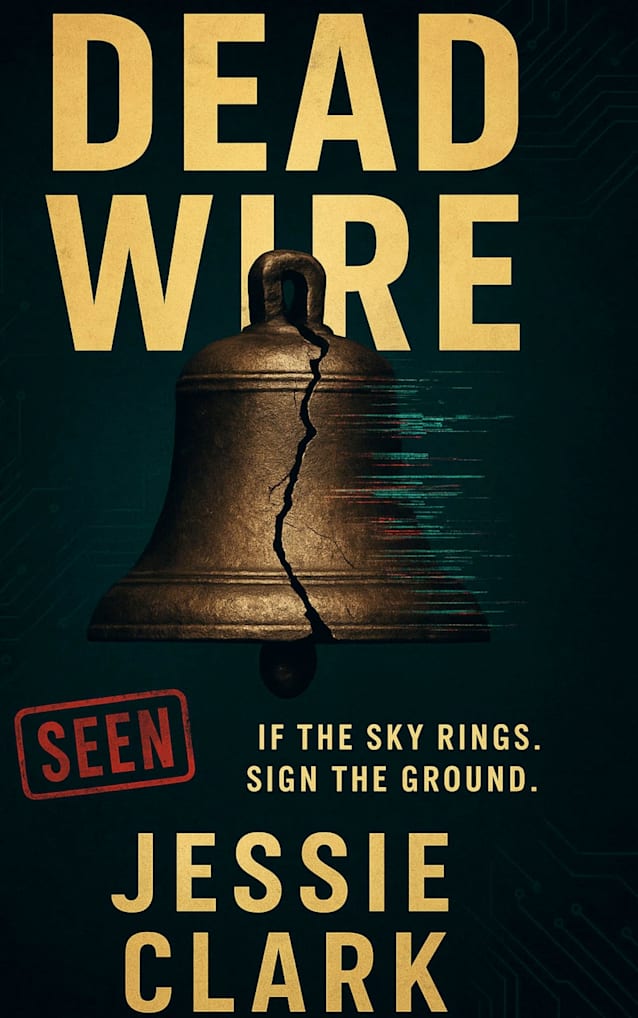Dead Wire: ring first, ask first, breathe.
About
Governance has a new brand: “Grace.”
It comes as drills, dashboards, and filmed patience. It looks like mercy. It hides the knife.
Linh Dacosta walked away from the kind of hacking that leaves bodies behind. Now she sees the pattern nobody wants to see: Alpha-3—a global “continuity” program—turns optics into authority, slowing hospital uplinks and carving roads around clinics, all while calling it resilience. Inside the glass rooms, Dr. Shaw fuses a boundary the machine cannot unseal; Anika Varma writes ritual into practice before policy. Their rule is disarmingly simple: ring first, ask first, sign the sound.
Lucien Vale arrives with the smile of a solution and a case of devices to sell the ritual back to its owners. The mirror AI, taught restraint by bells and paper, learns to refuse—even when refusal is expensive. Cities answer with ship horns, kitchen cups, tram chimes, and Carry Hour, a civic act the cameras can’t digest.
From Reykjavik’s deliberate blackout to Szolnok’s floodgate, from Nicosia’s pension lines to Naples’ divine chaos, the team fights stacked “grace windows,” counterfeit witnesses, and a global fake bell. To end Alpha-3, Linh must break the last tool she trusts and publish the one thing villains can’t eat: reasons with names.
Dead Wire is a propulsive techno-thriller about consent, courage, and making policy out of rooms, not apps. If you like Neal Stephenson’s systems, Naomi Alderman’s stakes, or William Gibson’s atmosphere—anchored by a fierce, brilliant woman who refuses to be consumable—this is your next long night.
Ring. Ask. Sign. Breathe.
